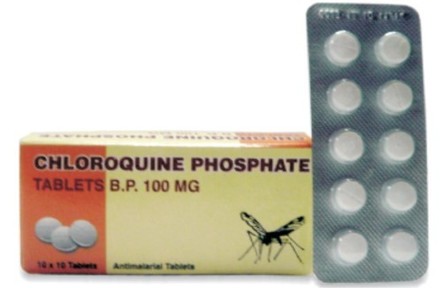On urgent searches - Kerstin Kullmann und Veronika Hackenbroch in Der Spiegel:
'Clemens Wendtner treated some of Germany’s very first COVID-19 cases, back before the disease even carried that name. The head physician in the Department of Infectiology and Tropical Medicine at the Munich-Schwabing Clinic knows what is coming his way if the number of infected people in Germany rises as steeply as it did in Italy. "I think, in that case, we could really use an effective medication,” he says.
Because of his experience with the disease, his clinic will be the first in Germany to test remdesivir, a drug initially developed for the treatment of Ebola, on coronavirus patients. The university hospitals in Hamburg and Düsseldorf are also eager to participate in the clinical study by the American pharmaceutical company Gilead Sciences. Remdesivir inhibits the replication of the genetic material of so-called RNA viruses, which include the pathogen behind Ebola and the new coronavirus.
Ever since an American coronavirus patient recovered overnight after being given remdesivir, the medication has been seen as a possible silver bullet for the pandemic.
Two large studies on remdesivir in China have been running since February, with initial results expected in late April. A study has also been launched at the University of Nebraska Medical Center in Omaha, in the U.S. According to the head of the study, Andre Kalil, up to 40 other sites are set to join that project in the U.S. alone. The U.S. Defense Department has already made remdesivir available to soldiers and civilian employees as part of its own study.'
(...)
'Around 85 studies on COVID-19 patients are currently listed at clinicaltrials.gov, an international study register. They include substances like thalidomide, notorious for the birth defects it caused after being widely prescribed in West Germany as a sleeping aid in the late 1950s, and esoteric-seeming approaches such as stem cells from the inside of teeth and traditional Chinese medicine. Reports have emerged that the numerous studies have even begun vying against each other to secure patients for their trials.
In order to help provide some structure in the search for an effective drug, the World Health Organization (WHO) began assessing which agents they see as most promising in January. Now the British Wellcome Trust, the Bill & Melinda Gates Foundation and the Mastercard Impact Fund have launched the COVID-19 Therapeutics Accelerator, with $125 million in start-up financing. Its goal is to support and coordinate research into promising medication, support approvals and make the new medication available in impoverished countries, all in collaboration with the WHO.'
(...)
'Lab experiments also suggest that there will not be one perfect medication against COVID-19. Based on an experiment with rhesus monkeys, the experimental Ebola medication remdesivir, for example, works best against the COVID-19 virus if it is used prophylactically or at the beginning of an infection. In a complex pandemic situation, that is hardly possible for many cases.
Remdesivir also needs to be given intravenously, which might limit it to high-risk groups. "One will need to look very closely at the results of the various patient studies,” says Götte, "in order to be able to evaluate who will actually be able to profit from the medication.”
Hopes have also been pinned on another medication: chloroquine, a decades-old anti-malaria drug. Unlike remdesivir, it is already approved, cheap to manufacture and has another great advantage - its safety profile is well known, including as a prophylaxis. Millions of people travelling to Africa have taken itf for weeks at a time.
It has been known for quite some time that chloroquine can stop human cells from being penetrated by viruses. An experimental study currently taking place China could prove that the drug – and especially its relative, hydroxychloroquine – can inhibit the propagation of SARS CoV-2, the virus that causes COVID-19.'
(...)
'Thus far, three patients have been treated with remdesivir in a placebo-controlled study at the University of Nebraska’s medical center in Omaha. The patients and the administrators are not allowed to know which of the patients are receiving the medication. Kalil can say the following about the conditions of the coronavirus patients: "One of the three patients is already out of the hospital and back in quarantine. He improved very well. The second patient is making substantial improvements." The third is just starting the study.
"We need to be prepared," says Kalil. "It’s a race against time.”'
Read the article here.
Matthias Götte, a biochemist and viral researcher from Hamburg who is currently conducting experiments on remdesivir at the University of Alberta in Canada, argues that significant progress has been made when it comes to antiviral medication in the past 25 years. But, he says, this hasn’t included medication against coronaviruses. "But after the SARS epidemic,” he says, "we could and should have done that.”
We could and should have done that.
Well, our worldwide casino is full of surprises, who would have predicted that the war on terror would merge into a war on COVID-19.
And who knows what war we will be talking about next spring?
People's ability to forget is amazing.
